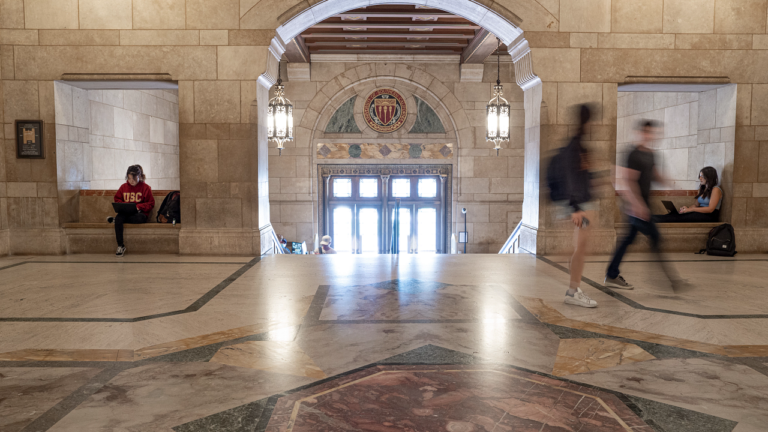The USC Dornsife Prison Education Project (PEP) creates the opportunity for USC and incarcerated students to learn from each other in a rigorous and collaborative learning environment across a variety of academic disciplines. Through PEP, USC students and faculty design, teach and participate in classes with people incarcerated in the California Department of Corrections and Rehabilitation system.

The USC Dornsife Prison Education Project (PEP) creates the opportunity for USC and incarcerated students to learn from each other in a rigorous and collaborative learning environment across a variety of academic disciplines. Through PEP, USC students and faculty design, teach and participate in classes with people incarcerated in the California Department of Corrections and Rehabilitation system.
History
The USC Dornsife Prison Education Project (PEP) was founded at the University of Southern California in 2017 in collaboration with Cal Poly Pomona’s Prison Education Project. Since its founding, USC PEP has aimed to serve systems-impacted students both on USC’s campus and in custody within the California Department of Corrections and Rehabilitation. What began as one creative writing class at the California Institution for Men in Chino, CA, has since grown into regular course offerings at multiple correctional and transitional living facilities. PEP offers courses in film, astronomy, speculative fiction, screenwriting, and debate, among others. Through these classes, as well as Writing 320–a USC Writing Program course that co-enrolls USC students and students at the California Institution for Women in the same writing workshop–PEP publishes both in-custody and USC students’ writing in print anthologies. In 2020, PEP complemented its course offering by creating the PEP Talks series, which brings together activists, artists, and academics for critical conversations around incarceration for a national audience. In 2021, PEP founded the Readers’ Circle, an initiative designed to address the question, “How can students continue to receive feedback on the work once classes end?”. The program links writers who are currently in custody with USC professors and students for a host of writing services including editing, copy-editing, and transcription. Each year, PEP administers national writing contests for systems-impacted writers and awards scholarships to systems-impacted USC students. All of PEP’s efforts aim to directly support the work of underrepresented writers while fostering creative and intellectual exchange between the university and diverse groups within the community. Ultimately, PEP seeks to reinforce the idea that education is a fundamental human right.
PEP seeks to reinforce the idea of education as a fundamental human right and to facilitate connections that transcend walls both literal and figurative.
45+
courses taught by 40 faculty since the program’s inception.
1000+
incarcerated students engaged through classes, contests, and editorial mentorship.
600+
USC student and faculty member participants.